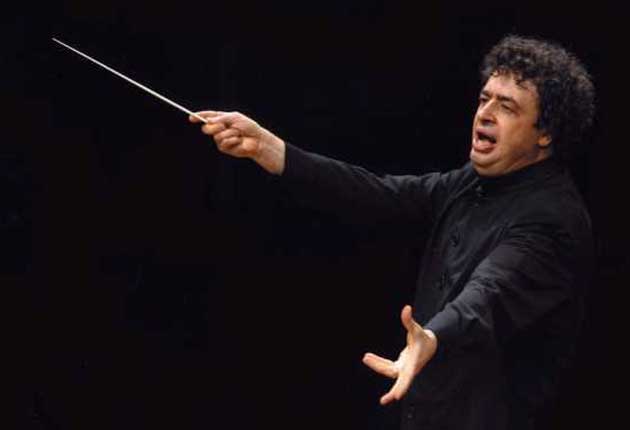National Youth Orchestra/Semyon Bychkov, Roundhouse, London

Your support helps us to tell the story
From reproductive rights to climate change to Big Tech, The Independent is on the ground when the story is developing. Whether it's investigating the financials of Elon Musk's pro-Trump PAC or producing our latest documentary, 'The A Word', which shines a light on the American women fighting for reproductive rights, we know how important it is to parse out the facts from the messaging.
At such a critical moment in US history, we need reporters on the ground. Your donation allows us to keep sending journalists to speak to both sides of the story.
The Independent is trusted by Americans across the entire political spectrum. And unlike many other quality news outlets, we choose not to lock Americans out of our reporting and analysis with paywalls. We believe quality journalism should be available to everyone, paid for by those who can afford it.
Your support makes all the difference.There was much romantic talk last week, as Britain's leading youth orchestras gave their New Year concerts, about emulating the achievement of Gustavo Dudamel's Simon Bolivar Youth Orchestra, which is drawn from the poorest parts of Venezuela. Our kids can do it too, people said. But, of course, they can't. If the Venezuelans play as if their lives depend on it, that's because they do; our bright young musicians can never be fired by such desperate determination to triumph against all the odds.
Yet, by any other standards, the National Youth Orchestra's concert was breathtakingly good. The last time I heard them was under the baton of James MacMillan, whose leaden presence communicated itself all too efficiently. This time, first delivering a piece they themselves had devised with the composer Peter Wiegold, and then venturing into the treacherous waters of Luciano Berio and Richard Strauss under the inspirational Russian conductor Semyon Bychkov, they played, quite simply, like professionals.
As the semi-improvised fruit of 10 days' work, Bow-Wave was a remarkably successful evocation of the engine room of a big ship, moored in a harbour pullulating with life. Deploying plinks and whistles, thuds and scrapes and farts, the 163-member orchestra explored textures and colours with fine control, and even managed to give it dramatic shape. Berio's Sinfonia is a labyrinth in which even the most seasoned listener can get (agreeably) lost, so it was a tall order to expect this teenage band – aided by Terry Edwards's crack London Voices choir – to master it. Yet, by and large, they did, bringing out its multiple references to Bach, Debussy, Beethoven and Ravel, as well as its recomposition of Mahler's Second Symphony.
The real test came with Strauss's Alpine Symphony. This gigantic canvas encompasses everything one might encounter during the ascent of a snow-capped mountain in changeable weather, but musically it's an intricate tapestry in which every instrument gets its moment in the sun. The strings evinced tender warmth, the horns were wonderfully assured, the quartet at the orchestra's heart was exquisite; the momentum never flagged for a moment.
The Roundhouse audience sensed the delight with which they responded to Bychkov's beat, and at the end gave this galaxy of young stars the ovation they so richly deserved.
Join our commenting forum
Join thought-provoking conversations, follow other Independent readers and see their replies
Comments